A day in the life of a Football League manager - matchday with Accrington Stanley's John Coleman
Ups, downs, cows on the loose - Coleman has seen it all in his 37 years in football. Simon Hughes joined him for a game


Your support helps us to tell the story
From reproductive rights to climate change to Big Tech, The Independent is on the ground when the story is developing. Whether it's investigating the financials of Elon Musk's pro-Trump PAC or producing our latest documentary, 'The A Word', which shines a light on the American women fighting for reproductive rights, we know how important it is to parse out the facts from the messaging.
At such a critical moment in US history, we need reporters on the ground. Your donation allows us to keep sending journalists to speak to both sides of the story.
The Independent is trusted by Americans across the entire political spectrum. And unlike many other quality news outlets, we choose not to lock Americans out of our reporting and analysis with paywalls. We believe quality journalism should be available to everyone, paid for by those who can afford it.
Your support makes all the difference.“I fancy us but I always fancy us, don’t I?
“I can’t understand why we’re not on Sky, it’s the game of the day…
“I think whoever scores first will win…
“Have you seen the way they defend corners?
“They’ve got two left footers playing centre half…
“They’re expansive but they leave gaps…”
I was hearing John Coleman’s half of a telephone conversation with Anthony Barry, one of five coaching staff members at Wigan Athletic – including the manager Paul Cook – who had played for Coleman at Accrington Stanley when they were a non-league club.
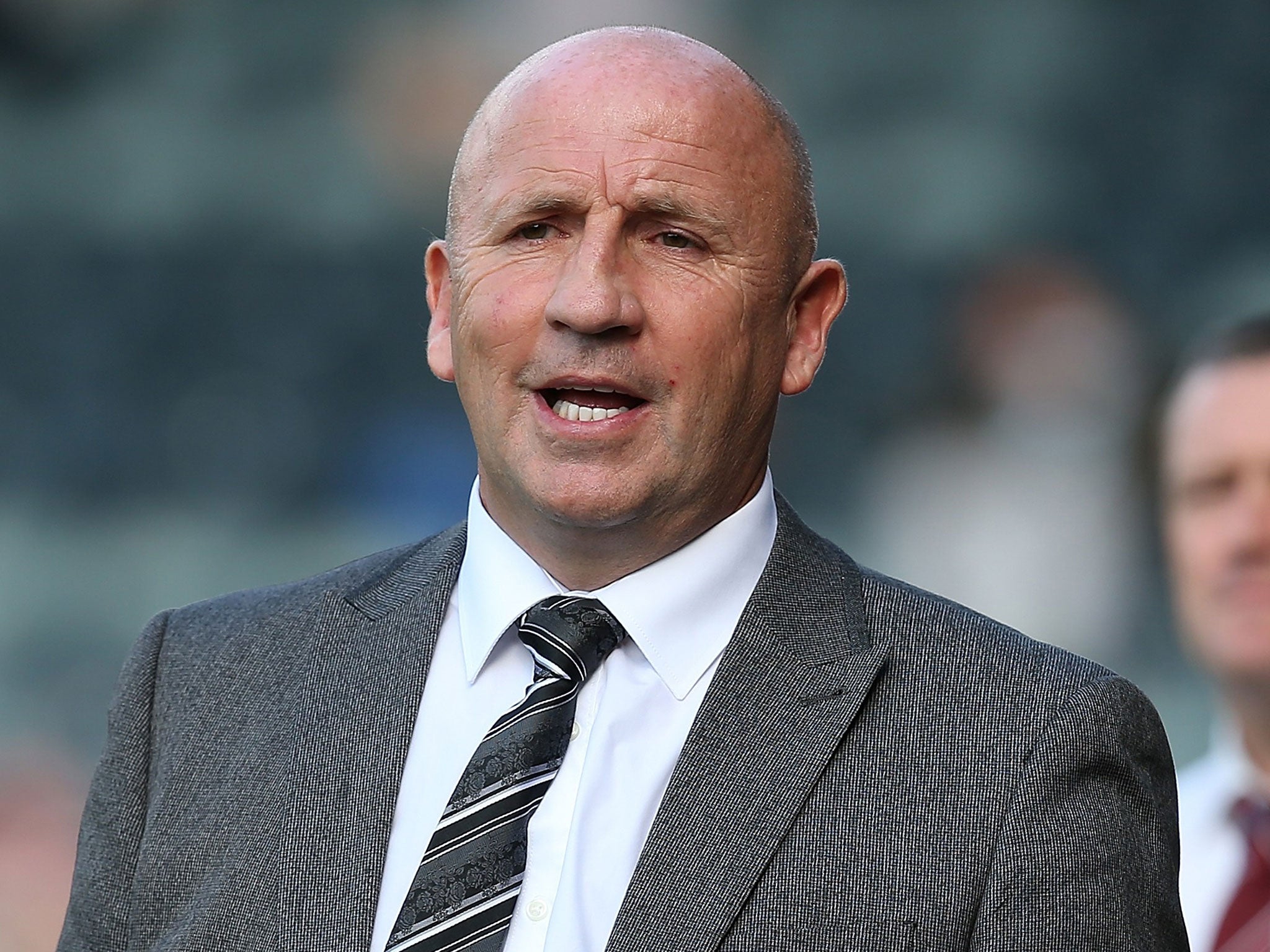
Cook would spend his Saturday afternoon in Accrington watching transfer targets, one of whom was thought to be Daniel Barlaser, the 21-year-old loanee Coleman would like to sign permanently from Newcastle United following a promising start to his Football League career.
Cook, it transpired, was not the only person on a scouting mission on a day, which had begun for Coleman with 40 lengths at a swimming pool in Southport. He would meet me at 10am in Ainsdale where he has breakfast whenever Accrington are at home. Ged Brannan, once of Tranmere Rovers and Manchester City, owned the place and he too had played for Coleman at Accrington 14 years ago, back when his partner in midfield sometimes was none other than Paul Cook.
Later that night, when the top button of Coleman’s shirt was unfastened, his tie had loosened his working day was over, Brannan would be fronting his business, serving on.
“I scored the only hat-trick of my career playing for John,” he remembered from the other side of the counter, pouring out a pint of cold lager.
In 2004, Accrington went to Dagenham & Redbridge and romped to a 5-0 victory. “They weren’t happy at all,” Coleman interrupted, with some satisfaction. “I asked them for the match ball to give to Ged and they wanted £50 for it. This was a lot of money for us then; it’s still a lot of money for us now…”
“But I’ve still got the ball,” said Brannan, grinning.
The exchanges in the Harbour Bar had reflected the sort of dynamic that exists at Accrington, a club where at the base of its strength is an endurance in the relationships that are built there.
**
John Coleman’s car phone was ringing. He had driven through the flatland to Maghull where Accrington’s first team coach John Doolan lives. A French accent was detectable across the loud speaker. Kick off was three hours away. The discussion was brief. “The good agents tend to know that it’s not a good idea to call when there’s a match on,” Coleman told me.
He was focusing on an opponent in fourth placed Barnsley, which he believed to be the best in League One. Accrington were seventh in the table having won the League Two title in April operating with one of the two smallest budgets in the division. Barnsley had been relegated from the Championship in the same month but they had rediscovered confidence quickly under their new German head coach Daniel Stendel, whose resources are far greater than Coleman’s. “You can look at what you haven’t got or you can look at what you have got and what you can do with it,” Coleman said. “That’s what we try to do.”
It is a frustration of Coleman’s that much of the reporting on Accrington falls on what they do not have, compounding an impression of “little old Accy.” What he is doing about it to change that comes secondary. He believed that another promotion was a possibility despite the odds being against his team. A rise from League Two had happened at the end of a season which began with Coleman telling his players they had a chance and the positive message was repeated this summer.
So far, the difference in standard was noticeable by the quality of the strikers Accrington were facing. Coleman anticipated that one of them would be the six foot six inch Kieffer Moore. Doolan had watched Barnsley’s previous fixture, a win over Southend, using InStat, a software which contains full coverage of every game from every professional league across the world. As assistant manager at Hibernian in 2016, he had spotted weaknesses in Rangers’ set-piece defensive organisation and two late corners would secure the club’s first Scottish Cup in 114 years.
Doolan had been at Everton and Wigan before following Alan Stubbs to Rotherham for a couple of months after that miracle at Hampden Park. Getting Doolan to Accrington was a coup. “We can’t influence people with cash so the currency we have to deal in is relationships and opportunity,” Coleman said. “At a lower level you can’t be a pushover but you’ve got to get players to like you. It certainly isn’t a popularity contest but if the players don’t like you they won’t buy in to what you’re trying to do. When the bullet’s in the gun, they won’t go that extra yard. If you get them to like you, they will.”
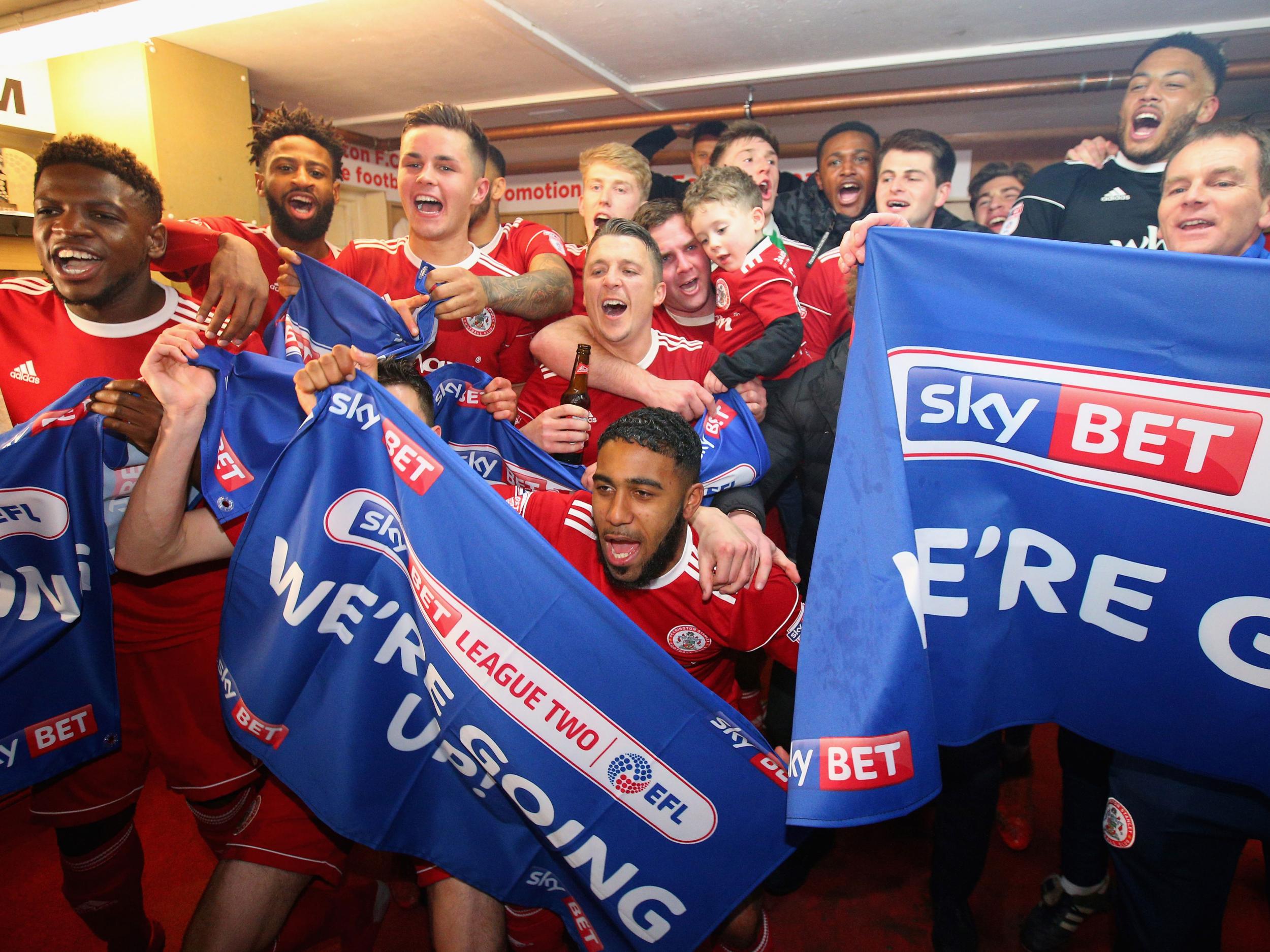
Accrington’s management team including assistant Jimmy Bell are from Kirkby. There is a perception that Coleman prefers to sign players whose roots are in Merseyside but there is a mix at Accrington, including five Newcastle supporters. He is wary of the pitfalls of signing too many players from his home city. Sam Finley, a 26-year-old midfielder, was the latest in that category. He had rejected a contract worth £200 a week more at Wrexham to sign for Accrington and fulfil the ambition of becoming a Football League player. Coleman was frustrated that he’d gone under his radar for so long in the same way Arsene Wenger might have had a Frenchman did well at another English club.
“I feel as though I should know about them,” Coleman admitted. “Liverpool lads are very passionate. Very outspoken. Will work hard. Very loyal. Sometimes too loyal to their own teammates, particularly fellow Scousers. They’ll dig other players out but they won’t dig their own out. That’s something that annoys me. I think that’s why you shouldn’t have too many. Four or five in your team, max. When you go past that they don’t dig each other as much as they should do. And you need balanced debate to progress as a team.”
After passing Blackburn, Coleman turned off a junction earlier than usual on the M65. A cow was loose on the motorway. With buses from Barnsley stranded in the gridlock, some supporters decided to traverse the hills and walk the remaining miles to Accrington.
**
Accrington sell their best players but the team keeps progressing. Goalkeeper Aaron Chapman was out of contract and three weeks after promotion to League One was sealed, he signed for Peterborough United. Around that time, the bids started coming in for Kayden Jackson, the athletic 19-goal striker. Accrington were in a healthy negotiating position because he had a year left on his contract and an option for another one. This has been Coleman’s tactic in recent times: to try and tie as many of his players as possible to two-year deals with additional possibilities, where the decision was weighed in the favour of the club.
“Because we always needed money, in the past we took what we were offered,” he whispered, now in the warmth of the directors’ lounge where the crockery of tea cups clattered above the hum of a television screen transmitting footage of Fleetwood Town’s live game with Walsall.
“We sold players who were worth more for less,” he reflected. “We had to break that mould. The only way you break that mould is by turning down offers. Saying no. Other clubs got a million pounds for their players. We wanted a million pounds for our players. The first offer that came in for Kayden was £600,000. By the end of the summer the bid from Ipswich Town was £1.75million. It means the next club that tries to sign one of our players understands what transfer bracket we’re now operating in. This will allow us to compete a bit more with those around us.”
Coleman hopes that Jordan Clark could be the next one in line for a big move. The winger was facing his home-town in Barnsley, the club where he began his career. Now 25, he is smarter and certainly fitter than any other player at Accrington according to Coleman and Doolan. Last season, Clark became the first player to complete nine laps of a track in what Coleman calls “the twelve-minute run,” beating the previous record by two-hundred meters. Jimmy Bell, Coleman’s assistant, had brought in a bike to use as a pacemaker that day and this seemed to spur Clark on, someone who prefers to train on a Monday with those that haven’t played at the weekend, while others in his position use the pool to stretch off.
Coleman is mulling over what to do next because he’d like to trigger the extra year in Clark’s contract but he is also mindful of getting good money for a player whose value has the potential to exceed Jackson’s. Ideally, he’d get him to extend his stay at Accrington, at least by another year.
“What you’ve got to get through to the lads who might be looking to move is, the less they move for the worse they get treated at their new clubs,” Coleman thinks. “If someone buys you for £1.75million, the wages will be double than if you go for nothing at the end of your contract. And this then increases their chances of playing.”
With Bell and Doolan by his side, Coleman had taken a step back from coaching to focus on recruitment – “the most important part of any manager’s job.” He says he listens a lot more than he used to. Though he leads, he is shaped by the needs and personalities of players, tailoring his own management to the environment he works in. He admits that maybe in his non-league days, he shouted more. Now, he is mindful of the language he uses.
“If you say to a player, ‘Don’t drop too deep,’ in their head they’re hearing a negative. ‘Don’t give the ball away’ - they’re going to be nervous on the ball. We’ve changed our language to try and be positive. Instead of saying, ‘Don’t let him turn,’ we say, ‘Get tight to him, force him down the line.’”
Coleman and Bell will mark their 1000th game together as a management team in the FA Cup second round at the start of December. Their relationship had started as Sunday League footballers in Kirkby at the beginning of the 1980s.
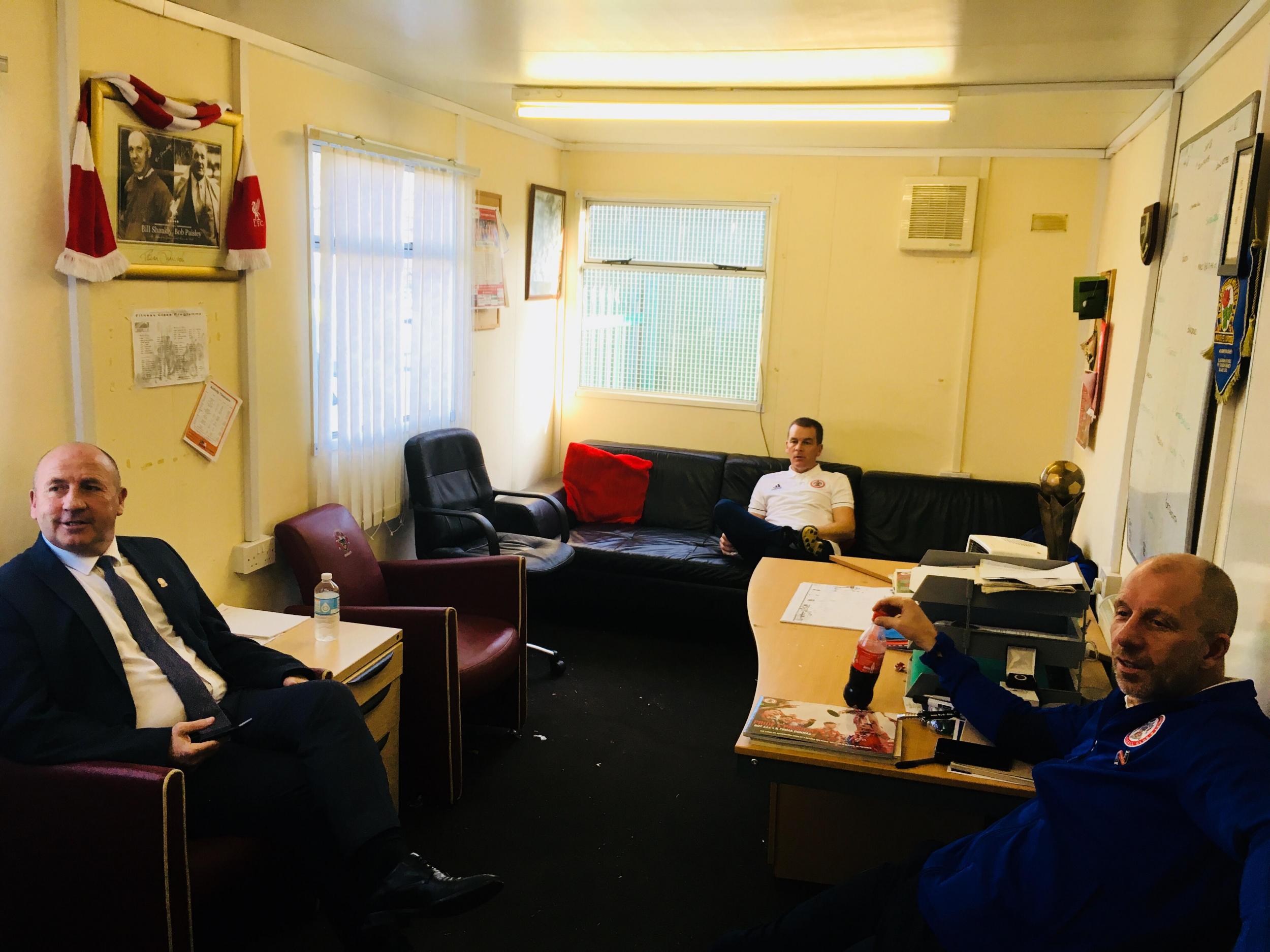
“This means we’ve given a thousand team-talks. You’re always looking at different ways of explaining things or articulating how you feel. Rather than having the players looking towards me for all the answers, I believe in guide and discovery. You give them ideas but unless they understand why they are trying to do something it’s pointless them doing it. They’ve got to buy into it. I like to ask them what their opinion is. There’s not always a right and wrong answer. Sometimes, they can help me. We’re working together.”
Before he turned professional, Coleman spent three years learning to be a teacher and one year in practice. He understands the value in clear communication.
“I’m a big one for analogies. When I don’t see the full backs tucking in, I tell the centre halves that they’ve got to think of themselves as bouncers. If there’s a fight on the door at a nightclub in Liverpool, do you think the bouncer tries to take them on all by themselves? No, they get on the phone and ask their mates on other doors to come down so they’ve got enough in numbers to combat it. ‘Why aren’t you getting your full-backs in? You should be like the bouncers at the Paradox screaming down the phone for help.’ I want the players to be loud. I’ll give them as much information as I can but they have to distribute it between themselves as well, especially when they’re in danger.”
**
Coleman did not need persuading that this was a good idea but he was uncertain why I wanted to follow him around on a matchday. “I don’t do anything particularly unusual,” he insisted. He saw matches as the fruit of all his hard work during the week. He had trust in his preparation. “Some managers, in my opinion, spend too much time coaching on the side-lines. That says to me that you haven’t done it in the week. It’s like a stage director producing a play and then shouting all of the lines to the actors. It doesn’t work, does it?”
**
“You’re not having him, Peter!”
“I haven’t a clue what you’re talking about, John…”
“Come on, Peter, we both know why you are here…”
Peter Ridsdale had entered Coleman’s office at 2pm, accompanied by Accrington’s chairman, Andy Holt.
“It’s Dan Barlaser isn’t it, Peter? We call him the Turkish De Bruyne…”
Ridsdale, an advisor to the owner of Preston North End’s owner, Trevor Hemmings, was wearing his long winter coat. Familiar football faces had followed him through the door.
There was Mick Doherty, the Celtic scout who recommended Seamus Coleman to Everton after seeing him play for Sligo Rovers with his son, Sean.
Next to him was Brendan Grant, a former team-mate of Coleman’s at Southport whose relationship remained strong even though Grant had crucially chosen not to pass to him at a game in Oswestry when the opportunity was there and Coleman was left wishing he had scored 50 goals one season rather than 49. Grant’s son Conor now plays for Plymouth Argyle.
The families were soon to arrive, Doolan’s first and then some of Coleman’s and Bell’s. Jimmy’s sons are James and Elliot. James had played a dozen or so Football League games for Accrington nearly a decade ago while Elliot is a young referee, carefully progressing through the ranks. Coleman’s sister is Sheila, her Scottish husband is Billy and their son is called Andrew.
The team sheet had been handed in, Bell and Doolan were outside warming the players up and Coleman had entered what he calls the “dead hour” of the week when there is little he can do but wait and, “unwind before the madness starts.”
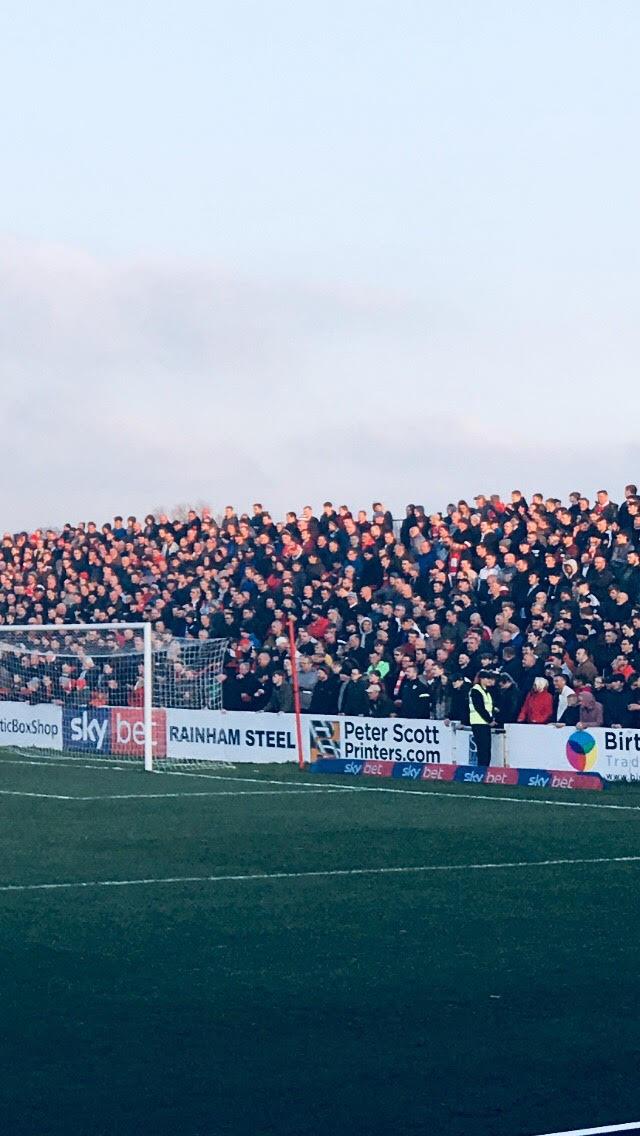
They talked about films, television programmes and asked each other quiz questions. “Name three players with Z in their surname to score in an FA Cup final,” Coleman fired off from his seating position below a Liverpool shrine which included a scarf and a photograph of Bill Shankly and Bob Paisley. The biggest crowd at Accrington since the 1960s was building outside and from the fanzone, you could hear Don’t Look Back in Anger being belted out by both sets of supporters each time the door opened. It was 2.45 and time for Coleman to do his team-talk.
“Good luck, John.
“Good luck, John.
“Good luck, John.”
**
Suede’s Animal Nitrate was reaching its end and lots of people were swaying. It did not feel like Accrington had lost, though they had. For an hour, they had more than matched Barnsley who were a more powerful team. Coleman had conceded for the first time since promotion he had sensed a jump in standard in terms of the opponent and the way they managed the game, especially after going down to ten men following Zeki Fryers’ second yellow card. The key moments had gone Barnsley’s way: Kieffer Moore’s back heel was majestically executed by only because it somehow ran through Michael Ihiekwe’s legs and their second goal in injury time should have been ruled off for offside, though in the manager’s office Bell’s son Elliot sympathised with the officials. On Sky Sports News, they watched replays of the goals over and over again to try and establish what they could have done differently.
Barnsley’s wild celebrations at the end reflected the distance Accrington have travelled. More than 2,500 away tickets had been sold and there had been an FA Cup atmosphere. It was bloody and thunderous but there was plenty of crisp passing.
Andy Holt, the distinctive looking flat-cap wearing chairman, was sanguine by seven o’clock. The club rooms remained packed and the people of Accrington were happy, even though their team had skidded to tenth. Thoughts about football’s extreme financial landscape which Holt has been particularly critical of slipped away too.
“We’re successful because of what he does,” Holt said, pointing at Coleman. “I can’t do my job without him. He’s the building block for everything we do. He’s the best manager by a mile in League One and League Two, a country mile. If we ever went back into League Two, I’d never sack him. I’d never let him down. We’re good mates now.”
Coleman had started a separate conversation with a fan. The trust in his relationship with Accrington and indeed Holt was shown by the agreement of a new four-year contract in September, an unprecedented deal outside the Premier League.
“I thought he was a bit standoff-ish and a bit moody when I first met him,” Holt admitted. “Over time, I learned what he was all about. Jimmy’s a bit more outgoing and John is a bit more reserved. He’s a great man, John. A top quality man. He’s been married 30-odd years. I’ve been married the same. He’s got integrity and morals.”
**
Accrington’s squad were off to Dublin for their Christmas party. Coleman was heading home, via Ainsdale, to be with his wife, Lorraine. They would actually soon be married for 37 years. “Thirty-seven seasons,” Coleman preferred to say. “She understands that I loved football before I loved her.” I laughed but I did not get the impression Coleman was joking. “You can call it a harsh reality but that’s the way it has been.”
I was keen to find out more about what Coleman thought of Holt’s initial impression of him and whether he might think this is what people see when they occasionally view him from behind the lens of a television camera. He is straight talking when he needs to be but warm, generous and very funny when he is surrounded by company he knows well. By his own admission, he is an unfashionable manager from an unfashionable city who works at an unfashionable club but he is thoughtful, persuasive as well as sensitive.
He sees the networkers at coaching courses and he is not one of them. “Once I’ve been introduced to someone, I can be friendly; I’ll open up then but I wouldn’t dream of going out of my way to introduce myself. I’d prefer to sit in the corner.” He has found the Myers-Briggs Type Indicator a worthwhile test in terms of analysing his own personality and how he can improve his self. “When we go out of a night on these courses, I’m the life and soul so everyone thinks I’m an extrovert. Deep down, I actually believe I’m an introvert. I think it’s an act. They all laugh when I tell them this. They see me getting up and singing.”
He places much value on self-analysis. He has learned that the blow of a defeat lasts longer than the glow of a victory.
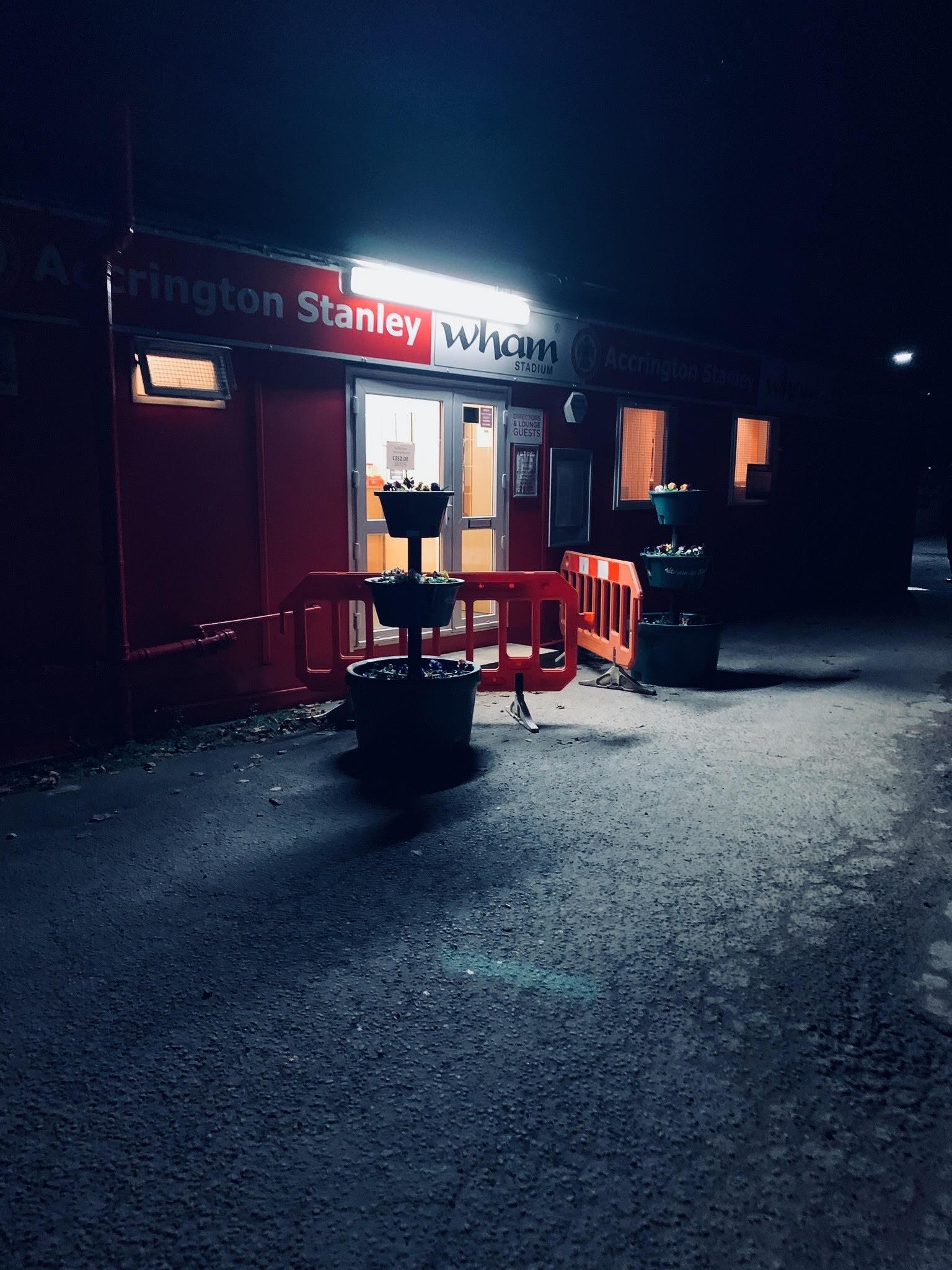
“Human nature attaches twice as much emphasis on loss than it does on gain. There was a study on golfers who were putting from eight feet for birdie and eight feet for par. They were twice as likely to hole the par put than they were for birdie because the fear of failure is stronger than the fear of success. I try and treat both defeat and victory as the same. I get upset when we lose but it’s more the manner of how we lose.”
When he was out of work for nearly a year in 2013, he even missed the defeats. His depression from that period helped him both support and manage his main striker, Billy Kee, when the 27-year-old went public with his struggles eighteen months ago.
“Until you’ve experienced depression, it’s very hard to understand. I wouldn’t wish it on anybody. You feel like you’re never going to enjoy anything ever again. I felt as though I was at that stage. I couldn’t enjoy my grandkids. I couldn’t enjoy playing golf. I couldn’t enjoy a nice meal. I couldn’t enjoy getting drunk or socialising because I felt as though I’d lost a bit of self-worth. It snowballs. It’s a spiral. You want to listen to sad songs. You’re already sad. It’s self-perpetuating.”
Coleman thinks strikers like himself and Kee are more likely to suffer from mental health problems because “nothing replicates scoring – players say they miss the thrill of playing but scoring is exhilarating; a drug. The best thing for strikers is to go and become a manager because the thrill is replicated in some way. I get disappointed when we don’t score.”
Coleman says he has learnt not to dwell on mistakes. He conceded that switching to three at the back when Accrington had the extra man against Barnsley might have been one of them. For a long time, he regretted the decision to leave Accrington for Rochdale in 2012. Accrington’s financial outlook was bleak at the time and he felt it compromised his ability to be honest with players.
“I knew I couldn’t look them in the eye and be certain that I was telling them the truth. I think if I stayed on, I’d have quickly lost their belief in me and that would have been the end of me, possibly as a manager.”
He does not regard the four league titles with Accrington as his biggest achievement in football, nor the club’s improbable rise, but instead his work at Southport after he was sacked by Rochdale. Southport were stranded at the foot of the National League when he took them on but with Bell – who left a full-time job at Port Vale to help him – the pair kept them up. After a short but successful period at Sligo Rovers, he returned to Accrington “a bit more philosophical.”
Key to his personal development has been the ability to establish the subtle differences between management and leadership.
“You’ve got to create a common cause with the players. They’ve got to believe in you and trust you. You’ve got to make sure they see a value in what you’re trying to achieve. You’ve got to make sure they see a light at the end of the tunnel but you’ve also got to be realistic. It’s easy to talk down to players but it’s more difficult to pick them up when they’re low. You’ve got to feel their pain and they’ve got to feel yours.”
Join our commenting forum
Join thought-provoking conversations, follow other Independent readers and see their replies
Comments